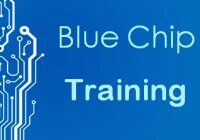 Overview
Overview
Oracle Database 21c is a converged database that supports a large range of workloads and data models. It’s a data management platform that provides high performance, security, availability, and scalability for cloud environments.
This instructor-led, live training (online or onsite) is aimed at database administrators who wish to learn and use the features of Oracle Database 21c in performing administrative tasks.
By the end of this training, participants will be able to:
- Understand the core concepts of Oracle Database 21c administration.
- Understand the Oracle 21c architecture.
- Learn how to perform administration tasks on Oracle 21c.
- Understand the Oracle 21c backup and recovery process.
Format of the Course
- Interactive lecture and discussion.
- Lots of exercises and practice.
- Hands-on implementation in a live-lab environment.
Course Customization Options
- To request a customized training for this course, please contact us to arrange.
Requirements
- Basic Linux and SQL knowledge
Audience
- Database administrators and developers
- Cloud database architects
- Application developers
Course Outline
Introduction
- Introduction to Oracle Cloud
- Overview of Oracle Database 21c
Oracle Database Architecture
- Overview of the Oracle Database architecture
- Configuring and connecting to the Oracle Database Instance
- Understanding the Oracle Database memory structures
- Process architecture and structures
- Process startup sequence
- Storage architecture
Database Instance
- Overview of the Oracle Database management tools
- Enterprise manager management framework
Setting Up the Oracle Network Environment
- Overview of the Oracle Net Services and Oracle Net Listener
- Oracle Network Connections
- Configuring the Oracle Network tools
- Listener Control Utility
- Oracle Net configuration assistant
- Oracle Net Manager
- Enterprise Manager Cloud Control
Database Storage Structures
- Overview of Database Block Content
- Storage structure
- Creating and managing Tablespaces
- Navigating and viewing Tablespace information
- Using Oracle managed files
User Security
- Managing database user accounts
- Predefined administrative accounts
- Creating a user account
- Authentication and password reset
- Understanding the concept of privileges, roles, and profiles
Data Concurrency
- Understanding the locking mechanism
- Understanding data concurrency
- DML locks
- Enqueue mechanism
- Lock conflicts
Undo Data
- Overview of Undo data
- Managing transactions and storing Undo information
- Undo data vs. Redo data
- Configuring and guaranteeing Undo retention
- Changing the size of an Undo Tablespace
Oracle Database Auditing
- Overview of database auditing
- Database security and compliance monitoring
- Standard database auditing
- Audit administration
- Configuring audit train
- Audit options
Database Maintenance
- Overview of database maintenance
- Alert history
- Automatic Database Diagnostic Monitoring (ADDM)
- Understanding the advisory framework
- Enterprise manager and advisor
Managing Performance and Resources
- Monitoring performance
- Tuning activities and performance planning
- Instance tuning
- Performance tuning methodology and data
- Managing memory
- Overview of Database Resource Manager
- Using the Database Resource Manager
- Maintenance Resource Manager plan
- Resource Manager workflow
- Resource allocation methods
Space Management
- Block space management
- Chaining and migration
- Understanding the types of segments
- Allocating extents and space
- Creating tables without segments
Backup and Recovery
- Overview of Instance Recovery
- Understanding and configuring Instance Recovery
- Instance Recovery Phases
- Using MTTR Advisor
- Understanding Media Failure
Summary and Next Steps
